Victorian Association of Jewish Ex & Servicemen & Women Australia Incorporated
Founding Member General Sir John Monash GCMG KCB VD
Prof Rosenfeld - Neurosurgeon
Pioneer surgeon praised, with more goals on the brain
Kate Hagan
June 13, 2011
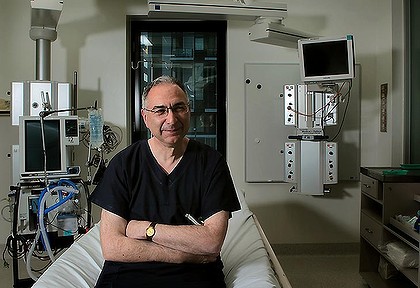
“I'm a driven person”: The Alfred neurosurgeon Jeffrey Rosenfeld, renowned for his work with child cancer patients. Photo: John Woudstra
He is a world-leading neurosurgeon who pioneered a surgical technique to remove rare tumours from the brains of children, freeing them of severe seizures.
He has served with Australian forces in Iraq, treating soldiers with horrific battle injuries at significant personal danger, and goes to Papua New Guinea each year to pass on specialist knowledge to local doctors.
In his spare time, Jeffrey Rosenfeld would have to be one of the most highly qualified St John Ambulance volunteers to offer emergency first aid to spectators at the footy.
But the 58-year-old professor and father-of-three has much more he wants to achieve - and looks forward to completing a music degree when he eventually retires.
“I'm a driven person, a type-A personality. I don't shy away, trying to achieve excellence,” he said. “I'm a competitive person and I want to do the best for myself and my patients and for Australia,” he said.
Professor Rosenfeld is perhaps best known for devising an operation, while working at the Royal Children's Hospital in the 1990s, to remove hypothalamic haematomas from the brains of children.
He operated on 70 children who travelled to Melbourne from around the world - including Mongolia, Tanzania, England, Germany and the US - after hearing about the innovative surgery from other parents.
“I've got US surgeons wondering what in the name of heaven are their patients going to outback Australia for?” he said.
Top US neurosurgeon Robert Spetzler, of Phoenix's Barrow Neurological Institute, found out when he invited Professor Rosenfeld to lead his team's operations on three children.
“They were so happy and impressed with it, they developed their own program specifically for this condition,” Professor Rosenfeld said.
“They've since done 150 cases and they're getting them from all over the world.”
Professor Rosenfeld said he was happy to hand over the work to others, about 10 years ago, and switch focus with a move to The Alfred hospital, where he is working to improve outcomes for patients with brain injuries.
Research is another interest, including developing a bionic eye that would restore sight to the blind.
Professor Rosenfeld said being appointed a Member of the Order of Australia (AM) was the “culmination of a lot of devotion to medicine and my patients over many years”.
He said it was a tremendous honour and reflected the contribution of many colleagues and his family.
Prof Rosenfeld - Queens Birthday
QUEEN'S BIRTHDAY: Glen Eira and Port Phillip's most honorable
13 Jun 11 @ 05:30am by Jenny Ling and Sally Spalding
NEUROSURGEON Jeffrey Rosenfeld has chalked up an impressive array of achievements during a career saving lives.
The 58-year-old has been appointed a Member (AM) of the Order of Australia for service to medicine through clinical leadership and academic roles.
Prof Rosenfeld, of Caulfield North, said it was an honour.
“It’s reflective of all the years of work I’ve done in neurosurgery, working with a whole lot of other people,” he said.
“I couldn’t have done it on my own.
“And I couldn’t have done what I’ve done without a lot of support from my wife and family
“My wife probably deserves the award as much as I do.”
Prof Rosenfeld is the director of neurosurgery at Alfred Health. His career highlights include teaching and surgery trips to Papua New Guinea and involvement with St John Ambulance.
John Dunscombe was particularly grateful for Prof Rosenfeld’s lifesaving work on his son, 7, who suffered brain damage after a car accident. In 2002, Mr Dunscombe built and auctioned a house in 2002 and donated the profits to The Alfred.
Prof Rosenfeld - Surgeon General
Major General Jeffrey Rosenfeld
Surgeon General Defence Health Reserves
Major General Jeffrey Rosenfeld joined the Australian Defence Force in 1984 and is currently Surgeon General Defence Health Reserves.
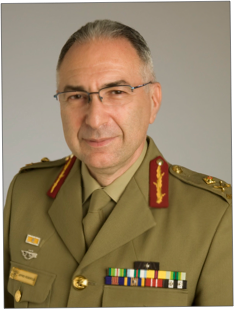 His postings have included Medical Officer to 4th/19th Prince of Wales Armoured Regiment, SMO 4th Brigade and Officer Commanding 6th Mobile Field Surgical Troop (6MFST).
His postings have included Medical Officer to 4th/19th Prince of Wales Armoured Regiment, SMO 4th Brigade and Officer Commanding 6th Mobile Field Surgical Troop (6MFST).
He was SO1 Health Administration in RHSA Victoria 1998-2000. He attended Reserve Staff College and Army Logistic Training Centre, and has been Chair of the General Surgery Consultative Group and Consultant in Neurosurgery to the Surgeon General. He is also Adjunct Professor to the Centre for Military and Veterans’ Health (CMVH), University of Queensland and Assistant Editor of ADF Health.
He was awarded the Geoffrey Harkness Medal in 2001 for outstanding service to Royal Australian Army Medical Corps (RAAMC). He is the recipient of the Michael E DeBakey International Military Surgeons’ Award for Excellence for 2009.
He is one of Australia's senior military surgeons and has served on seven operations including Rwanda, Solomon Islands, East Timor, Bougainville and most recently in Iraq. In his civilian work he is the Professor and Head of the Department of Surgery, Monash University and the Alfred Hospital and is a leader in Australian neurosurgery with an international profile. He was President of the United Nations Association of Australia (UNAA) Victoria and Commissioner of St John Ambulance Australia (Victoria) from December 2001 to June 2005.
He is married to Debbie and has three teenage children.
Prof Rosenfeld - M*A*S*H without the laughs
M*A*S*H without the laughs
By Tony Parkinson
January 29, 2005
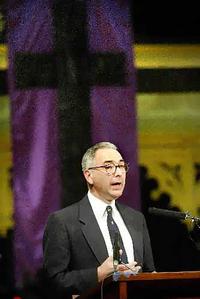 Photo: Craig Sillitoe
Photo: Craig Sillitoe
As US forces and Sunni insurgents engaged in ferocious urban warfare in the Iraqi city of Fallujah, swarms of medical evacuation helicopters descended on a makeshift tent hospital at the Balad air base, ferrying in broken and bleeding bodies by the dozen.
Melbourne neurosurgeon Professor Jeffrey Rosenfeld had seen the horrors of war before. But never quite like those eight days in November.
"We had a steady stream of casualties," he says. "There was rarely a moment when there wasn't an operation under way in the theatres. They were constantly in use."
It was a bit like M*A*S*H, he says, without the laughs. Rosenfeld was speaking to The Age in his office at The Alfred Hospital, after flying home from a three-month tour of duty as one of 20 Australian reservist medics attached to the 332nd Expeditionary Medical Group in Iraq. A man who in civilian life is best known for his pioneering surgery in the treatment of child epilepsy also carries the military rank of colonel.
He has served with Australian forces in Rwanda, Bougainville and East Timor - and, now, with coalition forces in Iraq.
Balad air base is about 60 kilometres north of Baghdad. In a hospital set up by the US Air Force, it provides the equivalent to level-one trauma care available in a major American hospital.
It treats wounded coalition soldiers, Iraqi National Guards and police, civilians and Sunni insurgents brought into Balad from the intense conflict in the so-called Sunni triangle, to the north and west of the Iraqi capital. These include victims of suicide bombs and rocket fire. The injuries are horrific.
"We were seeing severe trauma there, and often in bulk," he says. "We had mass casualties coming in, particularly with Fallujah. There were injuries often to multiple parts of the body. Burns involved as well.
"With blast injuries, you can get bruised lungs with hemorrhaging, burst eardrums from impact. Then, with penetration injuries, you get multiple pieces of shrapnel going into various parts of the body. Eye injuries are common, as well as head and neck injuries. That's why you need a neurosurgeon."
Terrorists are just going to kill, kill, kill. That's the enemy we're facing."
Jeffery Rosenfeld
You also need a neurosurgeon with nerves of steel. The Balad air base has been the most frequently attacked military installation in Iraq.
"Sometimes, there were three or four bombs, rockets, mortars coming into the base each day," Rosenfeld explains. "They can land anywhere on the base, so there is a constant threat."
So why would a leading medical professional leave the comforts of Melbourne, clad himself in khaki and throw himself into this life-threatening mess?
"You are putting your life at risk by going into Iraq, no question about that," he says. "Although my risk was lower than that of the front-line troops, it was never far from my mind while I was there.
"On the other hand, I felt very strongly that I wanted to do something for Iraq, to help the war on terrorism, to do my bit, however small it was. I felt Australia was contributing strongly, and I felt very proud and privileged to be serving Australia in this way."
For those who might suspect these to be gung-ho sentiments for a man dedicated by vocation to the saving of lives, it is important to know Rosenfeld is a former national vice-president of the United Nations Association in Australia.
His credentials as a humanitarian and liberal internationalist are impeccable. Indeed, he says he had some serious misgivings about the decision by the Bush Administration to go to war in Iraq without an explicit imprimatur from the UN.
But having served in the war zone - and assessed the nature of the threat from those he describes as "the bad guys" - he has returned convinced of the legitimacy of the cause.
"Although there was some conflict for me to go as a soldier to Iraq, and supporting a coalition which obviously went in against the advice of the UN, and Kofi Annan as Secretary-General, despite that I felt personally that it was a legitimate mission for the US and the coalition to be in Iraq, to try and restore peace to the country.
"I am not really commenting on whether America should have gone in there and ousted Saddam in the first place. I have mixed thoughts about that. But the fact is they are there, and Australia is there to support them, and I felt it was a legitimate use of Australia's defence forces to be there.
"There is also some hope this will be a new beginning for the Middle East, particularly Israel and the Palestinians, that the development of democracy and freedom in Iraq will act as a springboard for the spread of this philosophy to other despotic regimes in the region."
The experience has refined - and hardened - his thinking on the issue of terrorism.
"Terrorism is sometimes said to be a tool used by oppressed peoples to bring about freedom," he reflects.
"But when it involves killing civilians - of the opposing side, shall we say - then it becomes terrorism, in my book.
"There is no justification for the killing of innocent civilians to bolster a political movement. I saw civilians - some children, some adults - who had been victims of bomb blasts, either directed at them or near them.
"We were very distressed to see these people coming in. Some died before our eyes."
It is the indiscriminate targeting by the insurgents that disturbs him most.
"They are going to do as much damage as they can, and kill as many people as they can," he says.
"They are not concerned whether they are civilians or officials, or Iraqis or Americans, they are just going to kill, kill, kill. That's the enemy we are facing. That's what terrorism and extremism is all about."
Rosenfeld says he cannot comment on the recent claims in The Lancet medical journal that 100,000 Iraqi civilians may have died as a direct result of the US-led military intervention. "I have no way of knowing," he says.
But one of his discoveries soon after arriving in Iraq was that the best hospital in the country had been the exclusive preserve of Saddam Hussein, his family and cronies. Elsewhere, Rosenfeld found total destruction of infrastructure. There had been no public health service of consequence for a long time.
"There are kids starving. There is malnutrition. Malaria is a problem, along with gastro-enteritis and pneumonia," he says. "I have no doubt the civilian hospitals are over-crowded and under-resourced."
At Balad, he is keen to emphasise, there was no discrimination on the issue of who had access to the most sophisticated, high-priority care.
But, as Rosenfeld readily acknowledges, no medical advances - no matter how miraculous - can extinguish the horror, suffering and brutality of the conflict the Iraqi people are enduring. His hope is they will emerge from these dark days with the chance of a better future, beginning with the fraught process of getting through this weekend's elections.
"The extremists will do everything they can to disrupt the democratic process," he says.
"It will need a lot of military protection for voting booths. There will be a high threat level. No doubt there will be suicide bombings, and people will be killed, injured and maimed."
He accepts the legitimacy of the election result will be questioned by some, given the threat of a Sunni boycott. "If the Sunnis decide not to take part, that is their decision.
"Eventually, I think they will come to regret it. They will want to become part of the process of restoring government and services to the Iraqi people, and I think they will come around to the idea that they have to take part and they have an important role to play.
"It may not happen at this election, but I think the insurgency will gradually peter out as the Iraqi people realise the government and the coalition are actually trying to help them and to restore their independence, and give them freedom - and not to steal their oil.
"That will take time. Freedom takes time."
Prof Rosenfeld - Miracle Worker
Monash Magazine
Issue 9, 2002
The miracle worker
Performing wonders is all in a day's work for brain surgeon Jeffrey Rosenfeld, writes DIANE SQUIRES.
Neurosurgeon Professor Jeffrey Rosenfeld was hailed a hero last year when he successfully operated on Sebastian Selo, a young English boy who suffered from severe seizures caused by a rare brain tumour known as hypothalamic hamartoma.
The operation was complicated and fraught with danger, and success was not guaranteed. But while he made headlines in Australia and overseas for the vast improvement in the young boy, the operation represented just one of 34 similar procedures the director of Monash University's Department of Neurosurgery has performed during his career.
"It is an interesting story, because it really is much wider than Sebastian Selo. I have been doing epilepsy surgery on children for years," he said.
The surgery has seen a major improvement in most of his patients. About 70 per cent of the children who have undergone the operation have become seizure-free.
The talented neurosurgeon was recently awarded the King James the Fourth Professorship from the Royal College of Surgeons in Edinburgh for his work on the rare condition.
In 2000, he was appointed professor of neurosurgery at Monash University and The Alfred hospital, where he is based.
He was deputy-director of the neurosurgery department at the Royal Melbourne Hospital from 1993 to 2000 and director of the neurosurgery department at the Royal Children's Hospital from 1996 to 2000.
As well as undertaking ongoing research projects with colleagues at Monash and The Alfred, Professor Rosenfeld is trying to increase neurosurgery teaching at the undergraduate level and is heavily involved in postgraduate teaching in the field.
"This has been a very important chair for Monash surgery to initiate," he says.
"Academic neurosurgery, both teaching and research, in Australia has really been a poor cousin to other academic elements of medicine. Australia has fallen behind the world scene in academic neurosurgery, and Monash has made an important contribution to redress that imbalance."
Professor Rosenfeld is also trying to forge links with other areas of the university to develop research collaboration.
"Neurosurgeons, particularly academic neurosurgeons, need to be involved in developing new therapies, and part of that involves collaboration with other areas of biomedicine," he says.
Professor Rosenfeld is a remarkable man by anyone's standards. As well as fulfilling his clinical and academic responsibilities, he is a senior medical officer with the Australian Defence Force (ADF), chairman of the general surgery consultative group to the ADF and assistant editor of the force's ADF Health journal.
He has also been deployed to Rwanda, East Timor and Bougainville as a general surgeon providing medical and surgical care to ADF personnel, United Nations staff and civilians. Somehow Professor Rosenfeld also manages to fit into his busy schedule his roles as Victorian commissioner of St John's Ambulance and state president and national vice-president of the United Nations Association of Australia.
But becoming a neurosurgeon was not an easy decision for Professor Rosenfeld.
An accomplished musician, he plays all the woodwind instruments, particularly the clarinet, and very nearly became a musician instead.
But while his parents "probably would have been happier" if he had chosen music, Professor Rosenfeld chose medicine.
"To be a top-flight musician is very competitive, probably even more so than being a surgeon, and I wouldn't have been happy being a second clarinet in the Melbourne Symphony, I would have wanted to be an international clarinet soloist or an opera singer or a conductor."
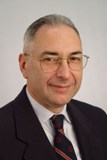 Not surprisingly, Professor Rosenfeld was this year named Victorian of the Year by the Herald Sun newspaper and was last year named Media Personality of the Year by the Melbourne Media Club.
Not surprisingly, Professor Rosenfeld was this year named Victorian of the Year by the Herald Sun newspaper and was last year named Media Personality of the Year by the Melbourne Media Club.
And while the accolades were in response to his work with Sebastian Selo, Professor Rosenfeld said he hoped the work he undertook with the community and his other medical positions had a part to play in his nomination as well.
Caption Man of many instruments: As well as gaining fame as a surgeon, Professor Jeffrey Rosenfeld is also an accomplished musician.
Photo: Peter Anikijenko
Prof Rosenfeld - Synopsis
Professor Jeffrey Rosenfeld
MB BS (Melb), MD (Monash), MS (Melb), FRACS, FRCS(Ed), FACS, FRCS (Glasg) Hon, FACTM, MRACMA
Synopsis of Professor Rosenfeld's background and experiences:
- Professor and Head, Department of Surgery, Central and Eastern Clinical School, Monash University, since 2006
- Professor and Director, Department of Neurosurgery, Alfred Hospital/Monash University, since 2000
- Professor and Director, Department of Neurosurgery, Royal Children’s Hospital Melbourne, 1996-2000; Neurosurgeon, since 1988
- Adjunct Professor, Centre for Military and Veterans Health, University of Queensland, since 2006
- Honorary Professor of Surgery, University of Papua New Guinea, since 2000
- Honorary Professor of Neuro-surgery Dept of Beijing Tiantan Hospital & of the Capital University of Medical Sciences Beijing
- Associate Professor, Paediatrics and Surgery, University of Melbourne, 1997-2000
- Deputy Director, Department of Neurosurgery, Royal Melbourne Hospital, 1993-2000; Head, Neurotrauma Service, Clinical Neuroscience Centre, 1994-1998
- Inaugural Director, Department of Neurosurgery, Monash Medical Centre and Prince Henry’s Hospital, 1990-1993
- Book, Neurosurgery in the Tropics: A Practical Approach to Common Problems, MacMillan, 2000
- Book (in Press), Rosenfeld, Practical Management of Head & Neck Injuries
- Author, of more than 200 peer-reviewed publications, book chapters, reviews, abstracts and invited papers (national and international)
- Editor, Journal of the Australian Defence Force Health Service, 2004; Chair, Editorial Board, 2010
- Member, Editorial Boards, Journal of Clinical Neuroscience; Journal of Emergencies, Trauma & Shock; American Journal of Disaster Medicine; and Injury: Journal of Care of the Injured
- Reviewer, numerous Australian and international medical journals
- Honorary Fellowship, Royal College of Surgeons, Glasgow, Royal College of Surgeons, Thailand, College of Neurosurgeons, Thailand
- Fellow, Australasian College of Tropical Medicine, 1996
- Examiner in Neurosurgery, Royal Australian College of Surgeons (RACS), since 2005; Member, Court of Examiners; Member, International Committee, since 1999; Deputy Chairman, Victorian State Committee,
- 2000-2002; Member of State Committee, 1998-2002; Supervisor, RACS Neurosurgical Training at Royal Children’s Hospital, 1996-2000, at Monash Medical Centre, 1992-1993, and at Alfred Hospital; Member, Management Committee, Pacific Island Project, since 1999; extensive Committee involvement at state and national levels
- Honorary membership - Neurotrauma Society of India (2011)
- Member, National Board of Neurosurgery, 1999-2005
- Ethics Committee Member, World Federation of Neurosurgical Societies, since 2006; Member, Trauma Committee, since 2010
- Executive Member, Neurosurgical Society of Australasia, 1999-2004; Chairman, Trauma Committee WFNS, 2001-2004
- Member, Psychosurgery Review Board, Victoria Government, since 2009
- Member of a range of other Australian and international medical societies, for many years
- Major General, Australian Army Reserves, since 2009; Member, since 1984
- Surgeon General, Defence Health Reserves, since 2009; Assistant Surgeon General, 2007-2008
- Director-General Health, Army Reserves, 2007-2008
- Clinical Policy Consultant to Director-General, Defence Health Service, 2003-2007
- International Operational Deployment seven times as Neurosurgeon to Iraq, Rwanda, Bougainville, the Solomon Islands and East Timor
- Chair, General Surgery Consultative Group, ADF 2001-2007
- Member, Research Advisory Board, Defence Health Foundation, since 2010
- Board Member, Sir Edward ‘Weary’ Dunlop Medical Research Foundation, since 2009
- Member, Victorian Committee, International Campaign to Ban Landmines, 1999-2007
- Commissioner, St John Ambulance Australia (Victorian Division), 2002-2005; State Medical Officer, 2000-2005; Corps Surgeon, 1991-2000
- Vice-President, United Nations Association of Australia, 2001-2004; President, Victorian Division, 2001-2004
- Member, Medical Standards Committee of the Metropolitan Ambulance Service, since 2004
- Member, Consultative Committee on Road Traffic Fatalities (Victoria), since 1992
- Board Member, Brainwave (Children’s Charity), 1997-2003
- Patron-in-Chief Victorian Association of Jewish Ex and Servicemen and Women Australia Inc
- Patron Royal Australian Army Medical Corps Association, Victorian Branch
Awards & recognition include:
- Centenary Medal, 2001
- Appointed Commander of the Venerable Order of St John, 2006
- Victorian of the Year, 2002
- Member of the Order of Australia, 2011
- Member of the Companion (AC) in the General Section 2018
- Syme Medal and Syme Professorship of the Royal College of Surgeons of Edinburgh for research on neural transplantation (mouse model)
- King James IV Professorship for 2002 of the Royal College of Surgeons Edinburgh for hypothalamic hamartoma surgery in children with gelastic epilepsy
- John Mitchell Crouch Fellowship of the Royal Australasian College of Surgeons (2004), their most prestigious research award
- Honorary Fellowship of the Royal College of Surgeons (Glasgow) ad eundum in March 2008
- The Sally Harrington Goldwater Memorial Visiting Professor Award from the Barrow Neurological Foundation, Phoenix, Arizona, USA (2003)
- LD Hupp Visiting Professorship in Paediatric Neurosurgery, University of Florida, Gainesville, USA (2004)
- Commonwealth Centenary of Federation Medal (2003)
- Asian/Australasian Travelling Fellowship of the Neurosurgical Society of Australasia (1995)
- Military awards: Australian Service Medal (ASM), the Active Australian Service Medal (AASM) and the Defence Long Service Medal (DLSM); Geoffrey Harkness Medal (2001) recognising outstanding contribution to the Royal Australian Army Medical Corps and the United States Air Force Commendation Medal (2007);
- Michael E DeBakey International Military Surgeons’ Award for Excellence (2009)
- John Thomson Medal and Oration (2010)
- Paul Harris Fellow, Rotary International (2010)

Professor and Head, Department of Surgery, Central Clinical School, Monash University,
Professor and Director, Department of Neurosurgery, Alfred Hospital and Monash University
Professor Jeffrey Rosenfeld graduated in medicine from the University of Melbourne in 1976. He completed general surgery training in Melbourne, and then undertook neurosurgical training. He completed post-fellowship training at the Radcliffe Infirmary, Oxford, UK and was Chief Resident in Neurological Surgery at The Cleveland Clinic Foundation, Ohio, USA. On his return to Australia in 1988, he was appointed Consultant Neurosurgeon to The Royal Melbourne Hospital and the Royal Children's Hospital and undertook a two year laboratory research fellowship at the Walter & Eliza Hall Institute of Medical Research, investigating neural transplantation in mice, obtaining the Master of Surgery degree from the University of Melbourne in 1992. He was awarded the Syme Medal and Syme Professorship of the Royal College of Surgeons of Edinburgh for this research. He was awarded a King James IV Professorship for 2002 of the Royal College of Surgeons Edinburgh for hypothalamic hamartoma surgery in children with gelastic epilepsy. Professor Rosenfeld is an international leader in surgery for hypothalamic hamartoma. Professor Rosenfeld is a co-principal investigator on the first multi-centre randomised controlled trial of decompressive craniectomy for patients with severe diffuse traumatic brain injury and is a Principal Investigator on the Monash University Bionic Eye Project which was awarded $8 million by the Australian Research Council in 2009. Professor Rosenfeld was awarded the John Mitchell Crouch Fellowship of the Royal Australasian College of Surgeons (RACS) for 2004. This is the most prestigious research award of the RACS. He was awarded Honorary Fellowship of the Royal College of Surgeons (Glasgow) ad eundum in March 2008.
Professor Rosenfeld specialises in cerebrovascular surgery (aneurysms, arterio-venous malformations), brain tumour and skull base surgery, minimal access and neuro-endoscopic surgery.
Professor Rosenfeld has been an invited visiting professor in the UK, USA, China, Japan, Thailand, India, Vietnam, Fiji, Papua New Guinea, Singapore and Israel and has developed a keen interest in developing specialist medical services, particularly neurosurgery, to the developing world. He has visited PNG and Fiji many times for the AusAid funded Pacific Islands Project (PIP) to perform neurosurgery and teach. He was awarded The Sally Harrington Goldwater Memorial Visiting Professor Award from the Barrow Neurological Foundation, Phoenix, Arizona, USA in February 2003 and the LD Hupp Visiting Professorship in Paediatric Neurosurgery, University of Florida, Gainesville, USA in August 2004. He was awarded the Asian/Australasian Travelling Fellowship of the Neurosurgical Society of Australasia in 1995. His book entitled ‘Neurosurgery in the Tropics: a practical approach to common problems' co-authored with David A K Watters, was published in 2000 by Macmillan, London. He has authored over 200 publications, and has been appointed to the Editorial Board of Injury (the International Journal of Care of the Injured), the Journal of Clinical Neuroscience, the Journal of the Australian Defence Force (ADF) Health Service (Chair, Editorial Board), the American Journal of Disaster Medicine and the Journal of Emergencies, Trauma and Shock (JETS).
Professor Rosenfeld was appointed Professor and Head, Department of Surgery, Central and Eastern Clinical School, Monash University February 2006. Professor Rosenfeld was appointed the Professor/Director of Neurosurgery at the Alfred Hospital and Monash University in October 2000. He was head of the Department of Neurosurgery at the Monash Medical Centre and Prince Henry's Hospital in Melbourne, 1990-1993. He was Deputy Director, Neurosurgery Department, The Royal Melbourne Hospital 1993-2000 and Director, Neurosurgery Department at the Royal Children's Hospital, 1996-2000. He was Associate Professor, in the Departments of Paediatrics and Surgery at The University of Melbourne. He is a Fellow of the Australasian College of Tropical Medicine and is an instructor on the Definitive Surgery for Trauma Course (DSTC), and has instructed on the Early Management of Severe Trauma (EMST) course, and the Mobile Intensive Care Ambulance Officers (MICA) course. Professor Rosenfeld was appointed Professor of Neurosurgery (Honorary) at the University of Papua New Guinea in 2000, Honorary Consultant Neurosurgeon at the Children's Hospital at Westmead NSW in 2003 and Honorary Professor of the Neurosurgical Department of the Beijing Tiantan Hospital and of the Capital University of Medical Sciences, Beijing, China in September 2005. He was appointed Acting Chairman Department of Surgery Central and Eastern Clinical School Monash University in April 2004. He was appointed to the Ethics in Neurosurgery & Medico-Legal Affairs Committee in 2006, the Education Committee in 2009 and the Neurotrauma Committee in 2010 of the World Federation of Neurosurgical Societies (WFNS). He became Chairman, Division of Surgery, The Alfred Hospital, August 2006 and a member of the Bayside Health Executive Committee to 2009.
Professor Rosenfeld has a particular academic and clinical interest in neurotrauma and is a Member of the National Trauma Committee, the Victorian Trauma Committee and the Victorian Road Trauma Committee, Royal Australasian College of Surgeons (RACS). From 2000 to 2003, he was appointed by the Minister for Health to serve on the State Trauma Committee (Victoria). He was also a member of the Ministerial Working Party and Task Force on Emergency Services and Trauma, Victoria, serves on the Consultative Committee on Road Traffic Fatalities, and is the Chairman of the Trauma Committee of the Neurosurgical Society of Australasia (NSA). He was appointed to the Medical Standards Committee of the Metropolitan Ambulance Service in 2003. He has also been appointed to the executive of the NSA, and the Board of Neurosurgery of the RACS, was elected to the State Committee of the RACS in 1998, and was elected Vice-Chairman of this committee in 2000, has been on the Management Committee of the Pacific Island Project (PIP) since 1999, and has been on the International Committee of the RACS since 1999. He was appointed Chairman of the International Committee of the NSA in 1999. He was appointed an Examiner in Neurosurgery to the Royal Australasian College of Surgeons and Member of Court of Examiners May 2005 and was appointed to the Board of Neurosciences Victoria in June 2005 and to the Scientific Advisory Committee of the Victorian Neuroscience Initiative in February 2007. He was appointed Chairman of the Steering Committee of the NET Program: Neurotrauma Evidence Translation of the National Trauma Research Institute (NTRI) in December 2009.
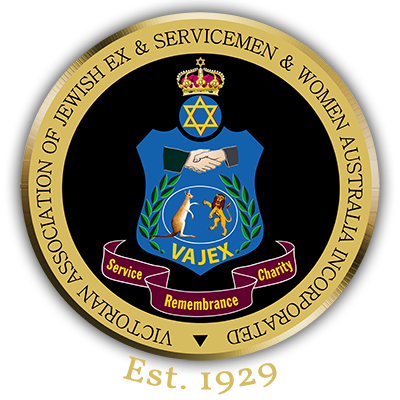
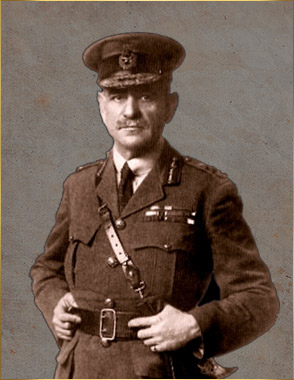 John Monash (Monasch) born
in Melbourne, Australia on 27 June 1865, the son of
German Polish Jewish migrants, can be researched in any
military history encyclopaedia or in fact by just
‘Googling’ his name on the internet. His history
and list of achievements are long and far too many to detail
in this brief summary. However, might I say that reading his
history is well worth the effort and I can assure you that
his deeds will amaze you. I have found that the deeds are
better labelled on more than one man and in more than one
lifetime.
John Monash (Monasch) born
in Melbourne, Australia on 27 June 1865, the son of
German Polish Jewish migrants, can be researched in any
military history encyclopaedia or in fact by just
‘Googling’ his name on the internet. His history
and list of achievements are long and far too many to detail
in this brief summary. However, might I say that reading his
history is well worth the effort and I can assure you that
his deeds will amaze you. I have found that the deeds are
better labelled on more than one man and in more than one
lifetime.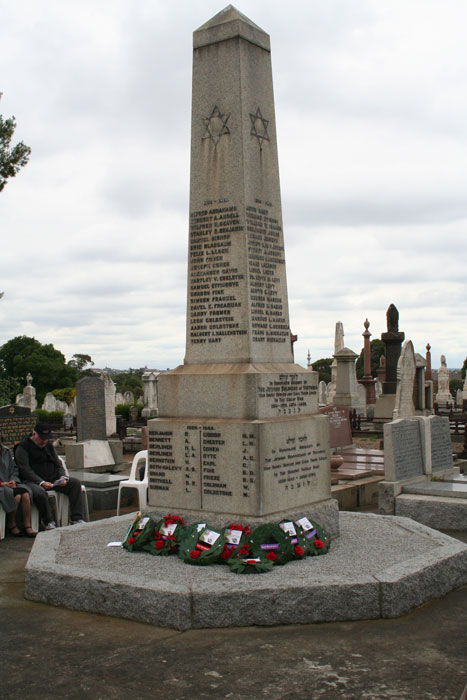 An
announcement was made in the weeks leading up to the
Centenary of ANZAC by Judy Landau, President VAJEX Aust.
She stated that it gave her great delight to announce
that VAJEX Aust (Victorian Association of Jewish Ex
& Servicemen & Women Australia Inc) has
successfully raised the required funds to build a new
Victorian Jewish Memorial after the style of the
historic Memorial located in the Jewish section of the
Melbourne General Cemetery. After an extensive two year
process, Judy has single-handedly sought letters of
support, raised the funds, and obtained approval from
the City of Port Phillip.
An
announcement was made in the weeks leading up to the
Centenary of ANZAC by Judy Landau, President VAJEX Aust.
She stated that it gave her great delight to announce
that VAJEX Aust (Victorian Association of Jewish Ex
& Servicemen & Women Australia Inc) has
successfully raised the required funds to build a new
Victorian Jewish Memorial after the style of the
historic Memorial located in the Jewish section of the
Melbourne General Cemetery. After an extensive two year
process, Judy has single-handedly sought letters of
support, raised the funds, and obtained approval from
the City of Port Phillip.